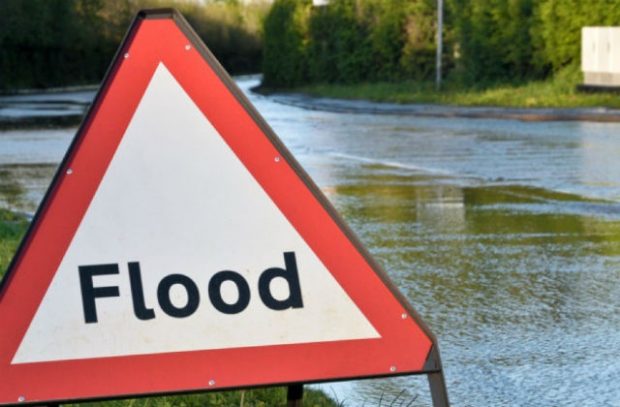
There has been widespread positive regional coverage of our publication of the assessment of the 2015-2021 flood and coastal defence capital investment programme – revealing how this £2.6 billion six-year programme of work exceeded its original targets by 14,000 with over 314,000 homes now better protected from flooding since 2015.
Op-eds by Environment Secretary George Eustice are carried in regional outlets including the Yorkshire Post and the Northern Echo. There is also a short piece in The Sun, and further coverage in the Western Morning News, the Eastern Daily Press and BusinessGreen.
Analysis in the post-programme assessment of 2015-2021 flood and coastal defence capital investment programme reveals how more than 850 new flood and coastal erosion defence projects were completed during this six-year period. Over 580,000 acres of agricultural land, as well as thousands of businesses, communities and major infrastructure – including more than 8,000 kilometres of roads – also benefited from improvement schemes.
Alongside delivering on its headline target, Defra’s capital investment programme from 2015-2021 has also brought wider benefits to both the environment through the creation and enhancement of natural habitats, and also local communities, through better protecting nationally important infrastructure and wider contributions to economic recovery. Early analysis suggests the programme of work over the last six years has saved the economy more than £28 billion in avoided damages to properties, businesses and more over the lifetime of these defence assets.
Environment Secretary, George Eustice, said:
Our programme of work has protected over 314,000 properties, defending people, communities, and businesses from flooding and coastal erosion. We know that there is still more to do, so we are doubling our investment with a record £5.2 billion over the next six years.
Emma Howard Boyd, Chair of the Environment Agency, said:
The Environment Agency’s six year flood defence building programme has better protected over 314,000 homes and businesses from the cost, pain and disruption of flooding. There are very few national infrastructure programmes that come in on time, on budget, and on target: I am very proud that the EA has achieved this. That is all down to the expertise, dedication and commitment of the EA teams and our partners across the country: they deserve the nation’s thanks.
Flood defence works. While we can never protect everyone against all flooding all the time, we can reduce the risk of it happening and the impact when it does. In February – for the first time - we had three named storms in a week, and rivers rose to record heights. While some 400 properties sadly flooded, over 40,000 homes and businesses were protected by our defences.
The climate emergency is bringing greater risks. Our response must be to protect our communities as best we can, make them more resilient, using natural flood management as well as hard defences, and to tackle both the causes and consequences of climate change. The EA is doing all that in our new £5.2bn flood defence investment programme. We will stay focused on delivering it for the people and places we serve.
The assessment of this 2015-2021 programme comes as the government is one year into a £5.2 billion investment in around 2,000 new flood and coastal defences between 2021 and 2027.
These upcoming schemes will help to reduce the national flood risk by up to 11 per cent and help to avoid £32 billion of wider economic damages along with a range of other benefits for local communities and the environment.
It will better protect 550 kilometres of road and rail infrastructure, create or improve 13,000 acres of natural habitat, and enhance 830 kilometres of rivers.
1 comment
Comment by Dave Stanley posted on
Hard flood defences to have a role to play. Equally important is reducing the rate and intensity of the flooding by delaying run-off. rebuilding the Soil organic matter in farmland has a multitude of benefits including The mitigation of flooding and drought. Then there is carbon sequestration, enhanced biodiversity, more nutritious food.
Why does the government not expedite the rapid transition UK Farming away from use nitrate fertilisers and associated fossil fuel use/global warming to organic and regenerative farming methods?